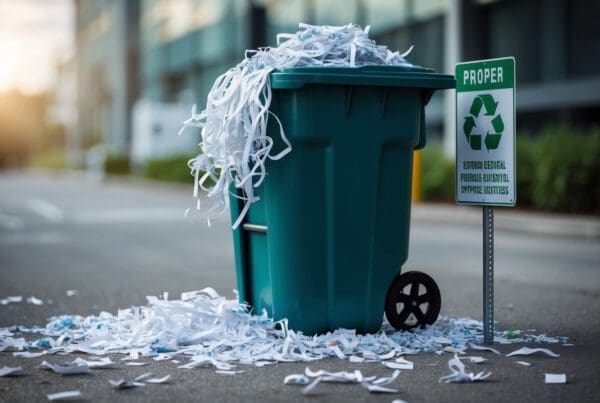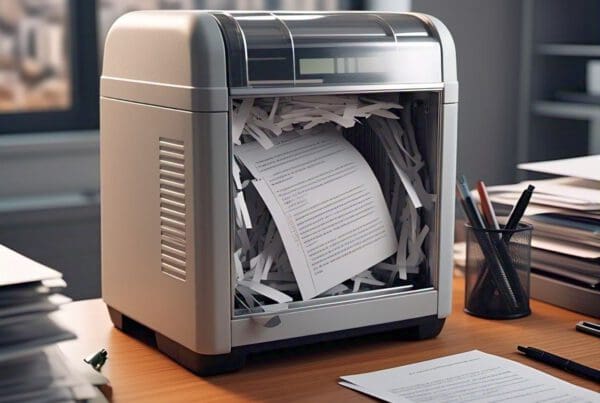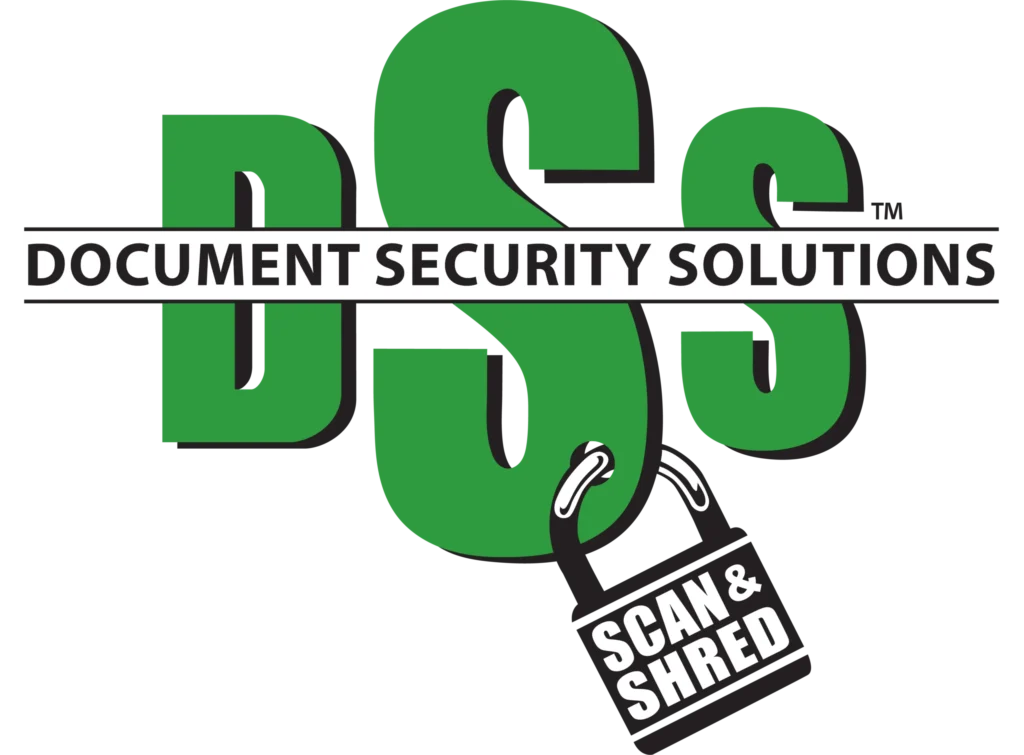Understanding Shredding Compliance in Georgia

In Georgia, shredding compliance involves understanding both the regulatory requirements and the certifications necessary for effective document destruction. We will explore the legal obligations and standards that ensure the secure disposal of sensitive information.
Regulatory Requirements for Document Shredding
Georgia law mandates strict adherence to several regulations so that businesses manage sensitive information securely. Key laws like HIPAA (Health Insurance Portability and Accountability Act) require healthcare entities to properly dispose of patient records to protect privacy.
FACTA (Fair and Accurate Credit Transactions Act) addresses the protection of consumer information, while GLBA (Gramm-Leach-Bliley Act) governs the confidentiality of financial data. Compliance with these laws helps us avoid potential fines and legal actions. Understanding these legal requirements is vital for any organization seeking shredding services.
Certifications and Standards for Shredding Services
Selecting a shredding service with the right certifications is essential. The NAID AAA Certification is a key standard in Georgia, ensuring that the shredding company adheres to high security protocols. This certification requires rigorous audits and procedures, guaranteeing the safe destruction of confidential records.
Certified services comply not only with state but also federal regulations, aligning with HIPAA, FACTA, and GLBA standards. When choosing a shredding service, verifying their certifications can assure us that they meet our compliance needs effectively. Each certification reflects a commitment to maintaining strict security measures to protect sensitive information.
Implementing Secure Shredding Operations
To ensure shredding compliance in Georgia, we need to focus on secure destruction methods, maintaining thorough records, and establishing a reliable chain-of-custody for sensitive documents. Our approach prioritizes privacy and data security.
Secure Processing and Destruction Methods
Our document shredding follows strict procedures to maintain security and privacy. We use industrial-grade shredders, which finely cut documents to prevent reconstruction. Cross-cut or micro-cut shredders are recommended for added security.
Secure bins are placed at convenient locations for safe disposal before shredding. Shredded materials are transported securely for recycling. Shredding operations often include industry-standard practices verified by security experts. We ensure that secure processing aligns with data security requirements.
Certificates of Destruction and Record-Keeping
Detailed record-keeping provides a layer of accountability. After shredding, we issue a Certificate of Destruction, which serves as legal proof of secure document destruction. This certificate typically includes the date, time, and method of shredding.
We maintain comprehensive logs of shredding activities to ensure transparency. These records help verify compliance during audits. Maintaining these records is crucial in aligning with privacy regulations and ensuring that our shredding processes meet legal standards.
Best Practices for Chain-of-Custody
A secure chain-of-custody ensures that documents are supervised from collection to destruction. This process starts with clearly labeled secure collection bins. Only authorized personnel handle documents, maintaining continuous oversight.
Tracking and documenting each step in the destruction process ensures accountability. Barcode systems or secure logs detail who accessed the documents and when. Our protocols are designed to prevent mishandling and safeguard sensitive information, reinforcing our commitment to data security.
Protecting Sensitive Information

Protecting sensitive information is crucial for maintaining confidentiality and preventing identity theft and data breaches. Our goal is to ensure the security of information through effective strategies.
Techniques for Preventing Data Breaches
Data breaches compromise sensitive information. We must implement robust measures to safeguard data.
Encryption is essential. We encrypt data both at rest and in transit to prevent unauthorized access. Strong passwords and two-factor authentication add additional security layers.
Regular audits help us spot vulnerabilities. We carry out assessments to identify weak spots in our systems. Updating software and installing patches is important, too.
Hard drive destruction is another key practice. When we dispose of old equipment, we ensure that data cannot be recovered. Using certified services ensures that all data is completely destroyed.
Safeguards Against Identity Theft
Identity theft can have serious effects. Let’s focus on tactics to prevent it.
Micro-cut shredders are highly effective. They turn paper documents into tiny particles. This makes it nearly impossible for thieves to piece them back together.
Access controls are vital. We limit who can access sensitive information. Only authorized personnel should have access.
We also perform regular training for our staff. They learn about spotting phishing attempts and other scams. Proper training equips them to protect confidential information effectively.
At every step, safeguarding our data ensures our privacy and security remain intact.
Shredding Service Options in Georgia
In Georgia, businesses have several shredding service options to ensure compliance with privacy regulations. They can choose between on-site and off-site shredding, enjoy flexible scheduling, and select the right provider to meet their specific needs.
On-Site vs Off-Site Shredding
We offer two main types of shredding services: on-site and off-site. On-site shredding, also known as mobile shredding, brings the shredding trucks directly to the business location. This allows businesses in places like Atlanta, Savannah, or Macon to witness the shredding process firsthand, which adds an extra layer of security.
Off-site shredding involves collecting documents and securely transporting them to a shredding facility. Some might find off-site shredding more cost-effective, especially for large volumes. It’s important for us to weigh the benefits and convenience of each method against our security needs and budget. Both services ensure that our documents are adequately destroyed and that compliance requirements are met.
Flexible Scheduling for Businesses
One crucial factor is flexible scheduling. We understand that every business has its own unique needs and timeframes. There are options such as scheduled shredding services, where we can set up regular times for shredding, whether it’s weekly, bi-weekly, or monthly, depending on what suits us best.
One-time shred services are available for those needing to clear out files occasionally. Businesses can select from various times to have their documents picked up or shredded on-site, providing us with the adaptability required. Having flexible scheduling can help us manage our document destruction needs without interrupting routine operations.
Choosing the Right Shredding Services Provider
Selecting the right shredding services provider is essential for ensuring secure and efficient document destruction. When evaluating, we consider factors like certification, range of services, and past client feedback. A good provider should be accredited, with many in Georgia holding certifications such as NAID AAA.
Look at their options, including both drop-off shredding, where we drop materials off at a designated spot, and on-site shredding. Price transparency and compliance with state guidelines are vital. By carefully considering our priorities, we can partner with a provider that best meets our needs, ensuring both convenience and compliance.
Additional Considerations for Shredding Compliance
Achieving shredding compliance in Georgia involves specific strategies. It’s important to focus on secure storage practices and verify the reliability of service providers.
Maintaining Compliance with Secure Storage
We must ensure that sensitive documents are safely stored until destruction. Using locked cabinets or secure rooms limits unauthorized access. Limited access controls and video surveillance can enhance security.
It’s crucial to establish a retention schedule to determine how long documents should be stored, aligning with legal requirements. Training staff in proper handling and storage procedures reinforces compliance. Also, we should regularly audit storage facilities to identify potential risks and ensure they remain up to standard.
Implementing a clear destruction policy is also vital. This policy should outline how and when documents should be shredded. It should address both physical materials and digital data.
Assessing Service Provider Reliability
Choosing a reliable shredding service provider involves considering their certifications and reputation. We should verify that they are backed by industry standards, such as NAID certification, which ensures adherence to privacy laws.
Requiring written contracts with detailed service specifications and penalties for mishandling safeguards our interests. It’s wise to check for client testimonials and past performance reviews to assess their reliability.
Additionally, we need to understand their chain of custody process. This tracks the handling of documents from pick-up to destruction, ensuring full accountability. Regularly reviewing this process helps detect any issues early. Engaging with a service that provides a certificate of destruction guarantees proof of compliance, solidifying our trust in their reliability.





